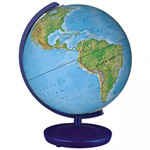Global Integrative Studies, School of

School of Global Integrative Studies: Faculty Publications
Document Type
Article
Date of this Version
2021
Citation
Island Studies Journal (2021) 16(1): 115-134.
doi: 10.24043/isj.130
Also available at: https://islandstudiesjournal.org/files/ISJPerdikarisBarbudaDisruptedIdentities.pdf
Abstract
In the aftermath of the forced evacuation of the island of Barbuda due to Hurricane Irma, the Barbudan people have experienced an exile and return to a ‘new’ geographical, political, and economic context, albeit on the same island. With the specter of climate change and the potential impacts on island communities and nations, we use Barbuda, sister island of Antigua in the Lesser Antilles, to examine the trajectory of nomadic identities as they navigate changes that threaten contemporary land relationships and culture. Since its first permanent settlement in the 17th Century, the island geography of Barbuda has been fundamental to Barbudan identity and provided continuity into modern Barbudan culture. The breaking down of this close relationship with the land and the introduction of a tourism monoculture reduces Barbuda’s ability to respond to crises such as hurricanes and pandemics. In the challenge of a post-disaster economic context, we will address the conditions pushing Barbudans towards a nomadic identity. We will discuss the nomadic in terms of forced exile and subsequent return to an island changed both by a severe weather event and subsequent policy that is disruptive to Barbudan identity, sovereignty, and way of life.
Included in
Caribbean Languages and Societies Commons, Emergency and Disaster Management Commons, Latin American Studies Commons, Nature and Society Relations Commons, Social and Cultural Anthropology Commons


Comments
Copyright 2021, the authors. Open access material.
License: Creative Commons Attribution, No Derivatives; CC BY-ND.
Published by the University of the Faroe Islands.